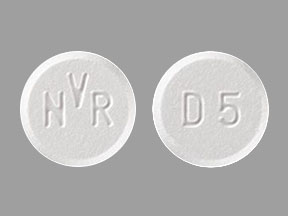Afinitor Disperz and Alcohol/Food Interactions
There are 2 alcohol/food/lifestyle interactions with Afinitor Disperz (everolimus).
Everolimus Food/Lifestyle
Moderate Food Interaction
GENERALLY AVOID: Grapefruit juice may significantly increase the plasma concentrations of orally administered everolimus. The mechanism is inhibition of CYP450 3A4 and P-glycoprotein activity in the gut wall by certain compounds present in grapefruit.
MANAGEMENT: Patients treated with everolimus should avoid consumption of grapefruit and grapefruit juice.
References (1)
- (2009) "Product Information. Afinitor (everolimus)." Novartis Pharmaceuticals
Switch to consumer interaction data
Everolimus High Cholesterol (Hyperlipoproteinemia, Hypertriglyceridemia, Sitosterolemia)
Moderate Potential Hazard, Moderate plausibility
mTOR inhibitors - cholesterol
Elevations in cholesterol and triglyceride levels have been reported in patients taking inhibitors of mTOR (mammalian target of rapamycin). Monitoring of fasting lipid profile is recommended prior to the start of therapy and periodically thereafter. Clinicians should achieve control of lipid levels before initiating therapy with these agents.
References (2)
- (2007) "Product Information. Torisel (temsirolimus)." Wyeth-Ayerst Laboratories
- (2009) "Product Information. Afinitor (everolimus)." Novartis Pharmaceuticals
Switch to consumer interaction data
Afinitor Disperz drug interactions
There are 561 drug interactions with Afinitor Disperz (everolimus).
Afinitor Disperz disease interactions
There are 8 disease interactions with Afinitor Disperz (everolimus) which include:
- liver disease
- vaccination
- renal disease
- hematologic abnormalities
- blood glucose
- cholesterol
- Infections
- wound complication
More about Afinitor Disperz (everolimus)
- Afinitor Disperz consumer information
- Check interactions
- Compare alternatives
- Pricing & coupons
- Drug images
- Side effects
- Dosage information
- During pregnancy
- Generic availability
- Drug class: mTOR inhibitors
- Breastfeeding
- En español
Related treatment guides
Drug Interaction Classification
| Highly clinically significant. Avoid combinations; the risk of the interaction outweighs the benefit. | |
| Moderately clinically significant. Usually avoid combinations; use it only under special circumstances. | |
| Minimally clinically significant. Minimize risk; assess risk and consider an alternative drug, take steps to circumvent the interaction risk and/or institute a monitoring plan. | |
| No interaction information available. |
See also:
Further information
Always consult your healthcare provider to ensure the information displayed on this page applies to your personal circumstances.


